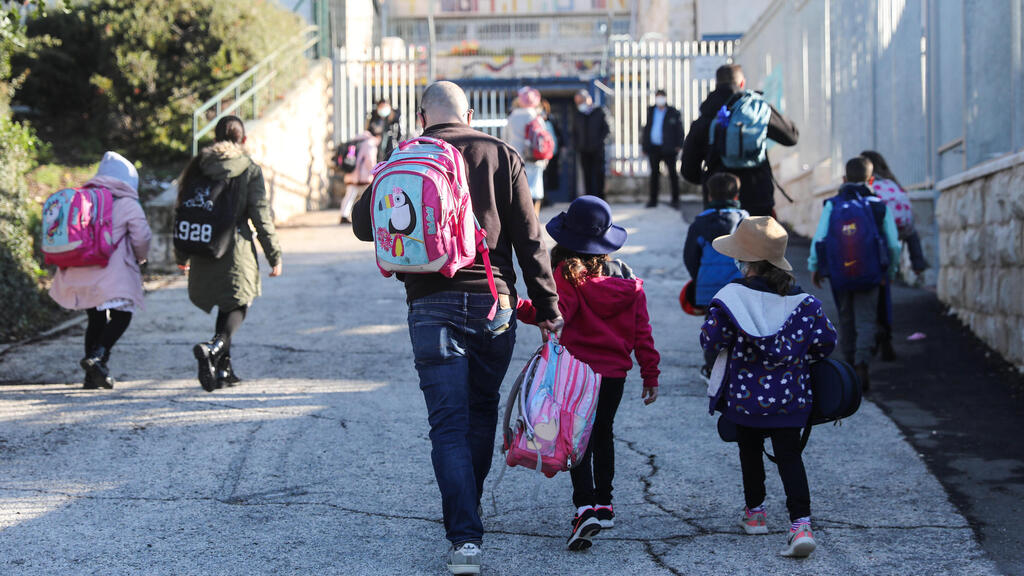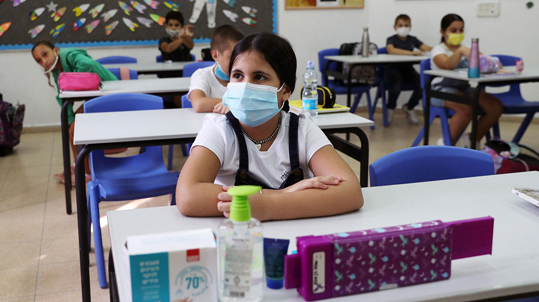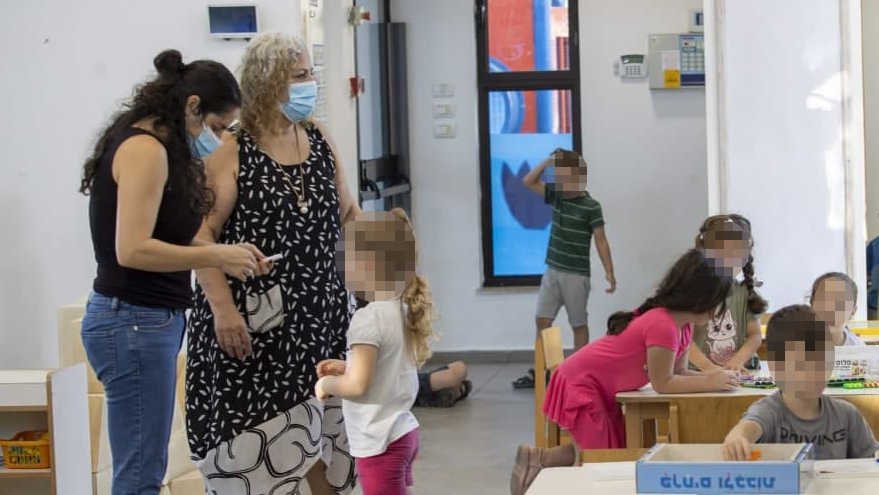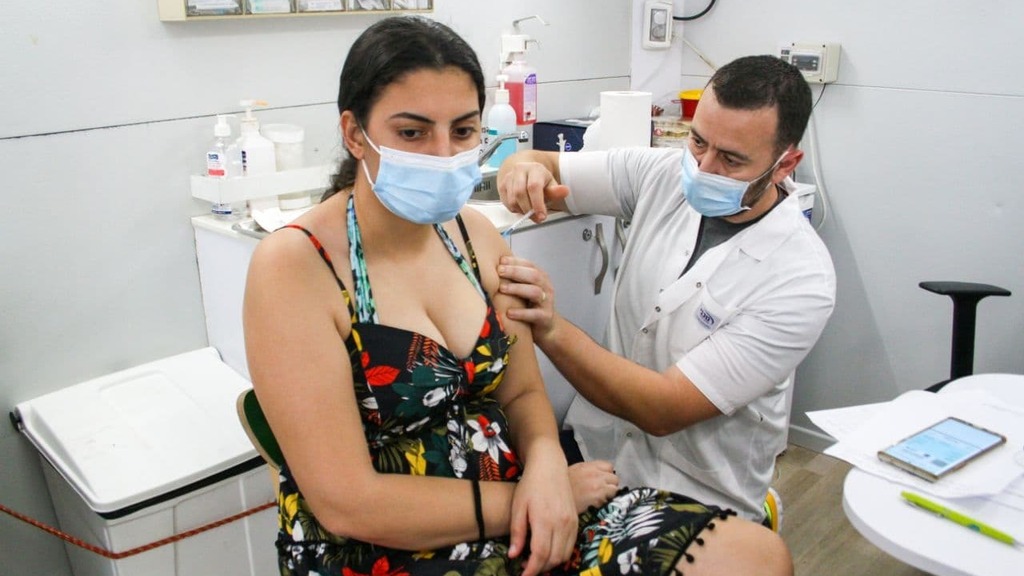After countless discussions and much uncertainty, Israel's coronavirus cabinet voted Monday evening to reopen the country's schools as scheduled on September 1, albeit under a host of restrictions never seen before due to the surge of the contagious Delta variant in the country.
On Wednesday, millions of students will flock to schools and kindergartens despite the rising number of COVID cases throughout the country.
Ynet has compiled a list of all the new rules you need to know before sending you children to school:
Grades 1-4 and kindergartens will study in person as usual. If a student is found positive for COVID - the students in the infected child’s class will switch to remote studies until the end of the isolation period due to the ineligibility of those under the age 12 to receive the vaccine against the pathogen.
Grades 5-7 will switch to a learning program that facilitates "reduced contact" between students. It includes studying in open spaces, distance learning and in-person studies in small groups. If someone is found positive for COVID, the students in the infected individual's class will move to remote studies until the isolation period ends.
5 View gallery
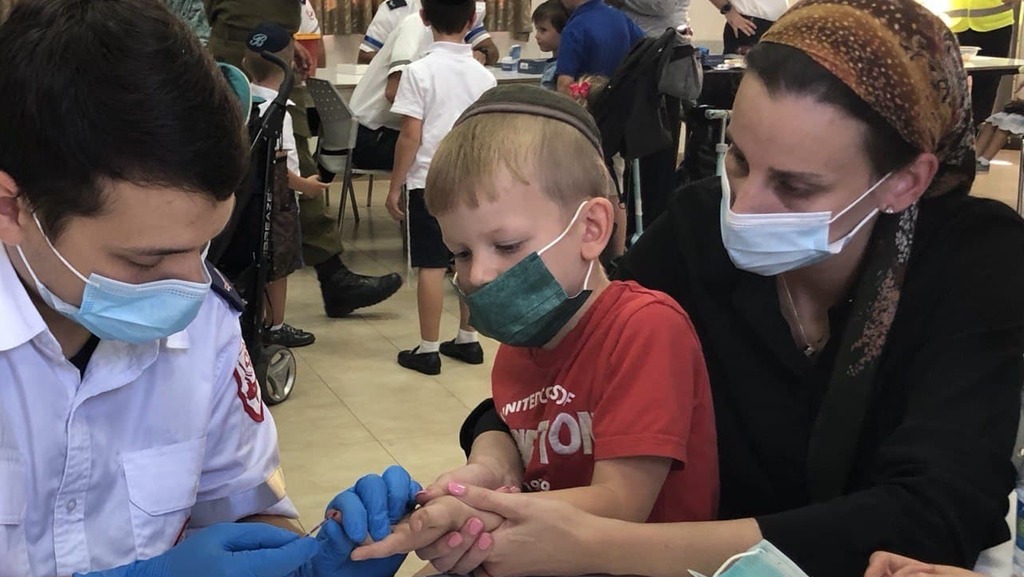

A child undergoes a test for coronavirus antibodies at a clinic near Jerusalem
(Photo: Gil Yohanan)
Grades 8-12 will study in person as usual. If a student is found positive for COVID, the students in the infected child’s class will move to remote studies until the end of the isolation period.
In "red" communities with high coronavirus infection rate, however, children in grades 8-12 will be forced to study remotely unless at least 70% of the students are vaccinated or have recovered from COVID.
Students in grades 8-12 who have been fully inoculated and therefore possess a Green Pass will be exempt from isolation in case of exposure to a verified patient.
On the first day of school, in order to reduce the risk of infection, parents are asked to submit a statement stating that their child has been tested and found negative for COVID.
Students up to the age of 12 will need to present a parental statement that states that their child had undergone an antigen test that returned negative.
According to the Compulsory Education Act, students who did not undergo COVID testing will still be able to attend school.
As per the Education Ministry’s decision, students aged 12 and up who have parental approval can get inoculated against COVID during school hours.
Students who received only the first jab of the vaccine will be considered “immunized” by schools until September 30, after which two jabs will be needed to be considered fully vaccinated.
Teaching staff, meanwhile, will need to have to present a Green Pass in order to teach in person. Staff members who did not get inoculated will have to present a negative COVID test once every two weeks.
Unvaccinated teachers who are not willing to get tested for COVID will be prohibited from entering kindergartens and schools.
In order to reduce the chance of an outbreak in schools, students and staffers will have to adhere to the COVID restrictions, which include wearing a mask in class in all grades, social distancing, keeping the classroom well ventilated, maintaining hygiene and studying in open spaces.
The “Green Class” pilot - according to which a student who is found positive for COVID will go into isolation, while the rest of his or her class continue to study as usual while undergoing daily COVID tests for a week - is expected to run from September 29 to October 15.


